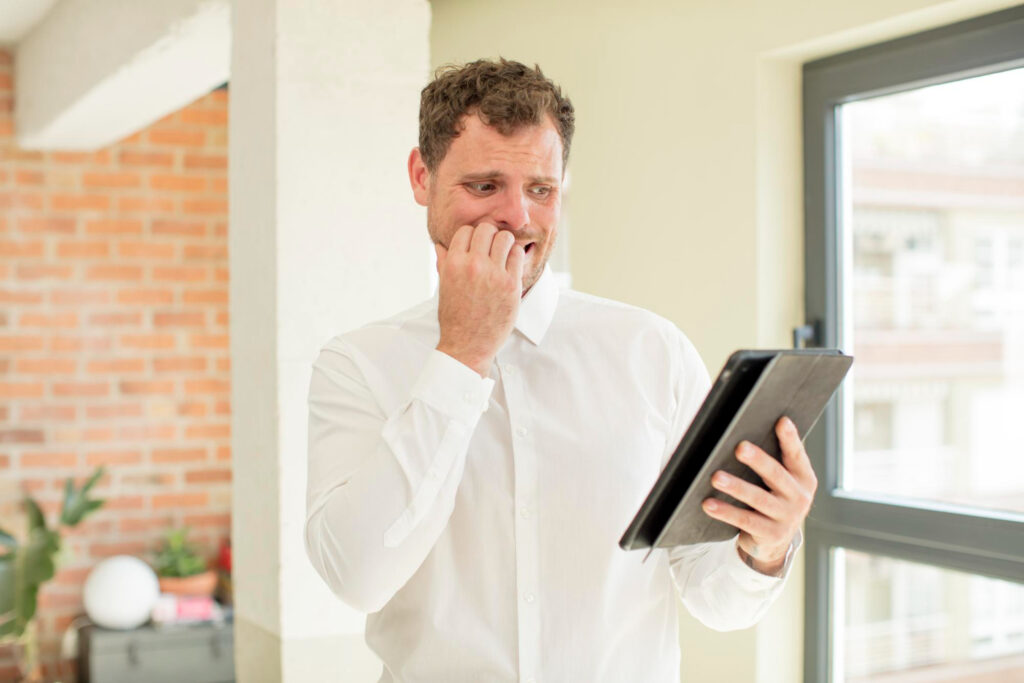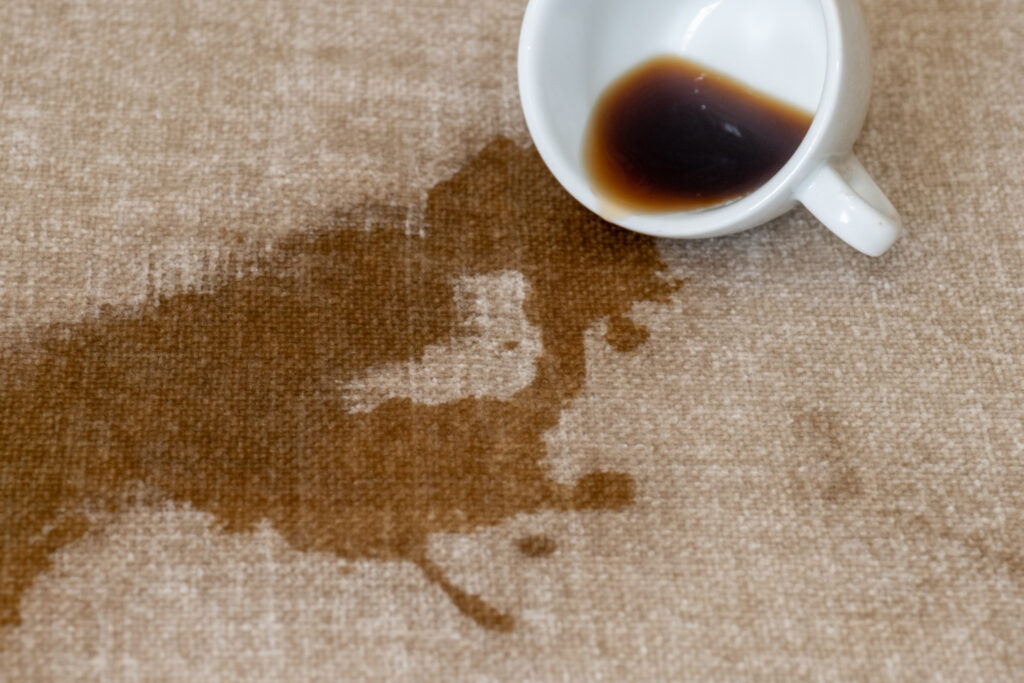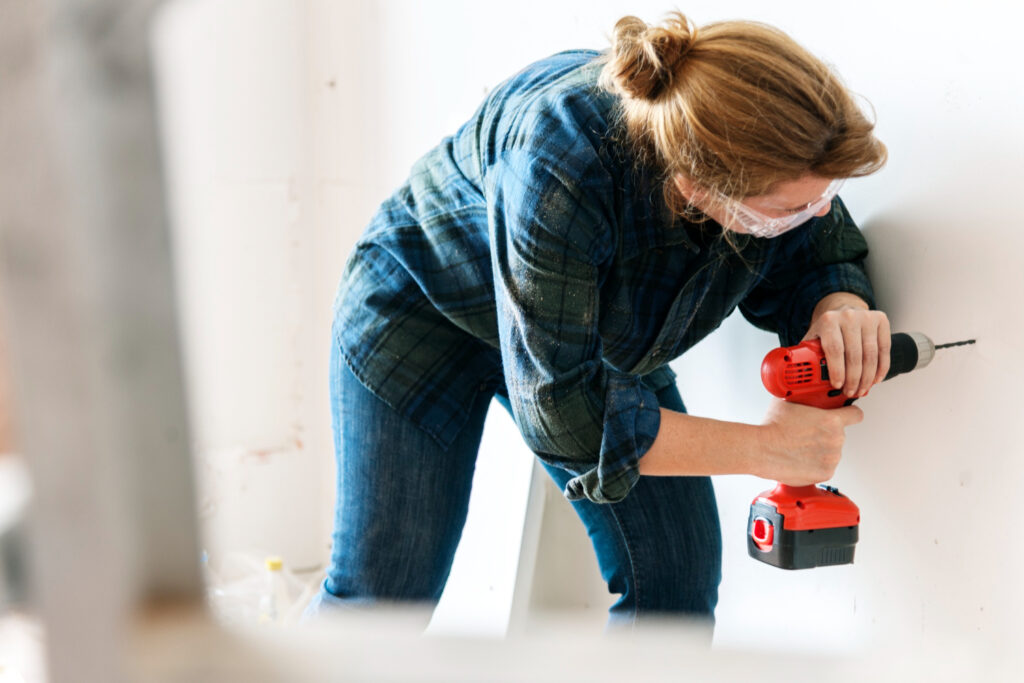Being a short-term rental host is both rewarding and challenging. One of the most stressful situations you may encounter is property damage caused by guests, intentionally or unintentionally. Whether it’s a broken window or a dented wall, navigating the repair process can be tricky. After all, this is your house, and you care for it.
Repairs and damages are usually costly, leading to more canceled bookings and profit loss. Even if it’s accidental damage, how likely are guests willing to pay for it? In this article, we’ll share insights on how to deal with rental property damages, what rights you have, and how to protect yourself and your assets in the future. Let’s dive in!

How to navigate property damage: step-by-step guide
1. Stay calm and evaluate repair costs
Okay, I hear you. Your initial reaction would be to panic and get mad. I invite you to take a step back, as this will help you deal with the situation more effectively and professionally. Start by assessing the damage. Go through the property and document everything. Take clear photos or videos of the damaged areas from multiple angles.
This documentation will be crucial for your records and any claims you might need to make later. Next, get quotes for the repair or replacement. Contact professionals if needed. If the damage is to a plumbing fixture, call a plumber for an estimate.
2. Categorize the damage
Once you’ve documented the damage, it’s important to categorize it correctly. There’s an obvious difference between wear and tear and severe damage. Wear and tear refers to the gradual deterioration occurring over time, such as minor scuffs on walls or slightly worn-out carpets. This type of damage is generally considered the property owner’s responsibility to maintain.
On the other hand, severe damage includes bigger issues such as large stains, broken appliances, or structural problems like a cracked wall. Understanding this will help you determine how to handle repairs and whether or not you should seek guest compensation or insurance coverage.

3. Cancel upcoming bookings
If the damage is severe, you might need to cancel upcoming bookings to allow repair time. The last thing you want is unsatisfied guests on top of a damaged property. Contact your upcoming guests as soon as possible and explain the situation.
Offer to help them find alternative accommodations if necessary. Clear communication is key. It’ll help you maintain your good reputation as a host while ensuring high standards for guests.
4. Communicate the damage with guests
Contact the guests responsible for the damage politely and professionally. Share the details and documentation of the damage with them, and discuss how you plan to handle the situation. Ask how the damage occurred to understand the context and avoid similar situations in the future.
This will also help identify if it happened by accident or intentionally. If the guest is cooperative, they might offer to pay for the repairs or help in another way. Document all communications. Keep a record of emails or messages if you need to refer to them later.

5. Use the security deposit (if any)
If you have already collected a security deposit from guests, use it to cover property damages. The security deposit is designed to cover unexpected costs caused by guests, so it’s important to utilize it appropriately.
For example, if a guest broke a chair and the repair cost is $100, and you have a $150 deposit, you can deduct the $100 and return the remaining $50 to the guest. Be sure to provide the guest with an itemized list of the repairs and costs before deducting them from the deposit.
6. Utilize your insurance policy
If you have an insurance policy for your rental property, now is the time to utilize it. Many host insurance policies cover damages caused by guests, which can alleviate the financial burden of repairs. Contact your insurance provider and file a claim, providing all necessary documentation and repair estimates.
For instance, if a guest caused extensive damage to your property, your insurance might cover the repair costs beyond your security deposit. Be sure to understand the terms of your policy, including any deductibles or coverage limits.

7. Ask for compensation
If the repair costs exceed the security deposit or there is no deposit, you may need to ask the guest for additional compensation. Approach the guest with a detailed breakdown of the costs and any supporting documentation.
Be polite but firm in your request. If necessary, send a formal payment request through the booking platform. If the guest is unwilling to pay, you may need to explore other options to recover the costs.
8. Claim a damage deposit from your platform
If you use a large OTA, they most likely offer protection or compensation for property damage. For instance, the Airbnb damage policy includes the Host Guarantee, which covers up to $1 million in damages caused by guests.
Hosts can also request an Airbnb security deposit, a fixed sum to account for damages up to this amount. As a property manager, don’t hesitate to involve Airbnb support to familiarize yourself with host damage protection terms.

9. Invest in host damage protection
Consider investing in host damage protection to avoid facing similar issues in the future. Many rental platforms offer specialized insurance or protection plans explicitly designed to cover damages caused by guests. This can help you manage repair costs and avoid financial strain.
Host liability insurance will also cover legal costs and damages if a guest is injured on your property or you face a liability claim. This will give you peace of mind and ensure protection beyond the platform’s standard policies.
10. Implement guest screening and booking policies
Although not always a foolproof method, guest screening can reduce the risk of property damage in your Airbnb property in the future. This is essentially a guest evaluation based on reviews from previous Airbnb hosts, identity verification, or booking history. A guest with consistently positive reviews and a history of respectful stays is less likely to cause damage.
It’s also important to outline some booking policies for Airbnb guests. Specify house rules, expectations for guests’ behaviors, and potential fees for damages. This transparency will set the right expectations and deter guests unwilling to comply.

Property damage: the bottom line
Property damages are a pain to deal with, whether or not you have host damage protection terms in place. If you want peace of mind, consider investing in vacation rental insurance such as Hosthub’s partners Steadily or BeSafe Rate. As a Hosthub user, you can also secure special discounts to get started.
Integrate those insurance apps into your Hosthub management system and spare yourself the headaches of potential repairs. With Hosthub’s unified inbox, you can stay constantly in touch with guests, so even if things go south, you can communicate your expectations and find common ground.



